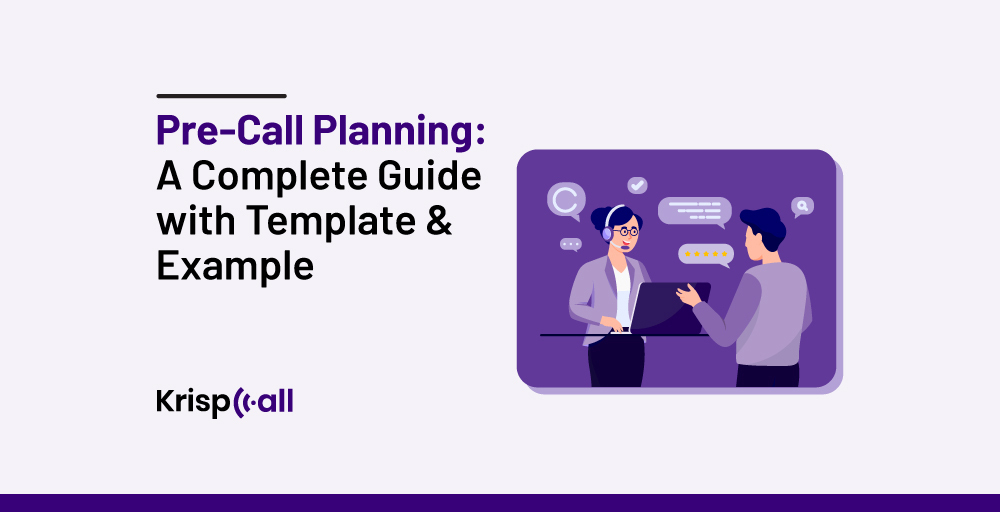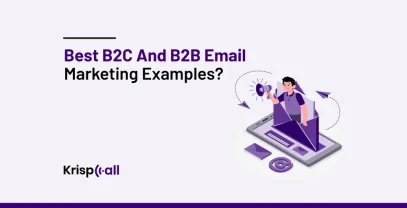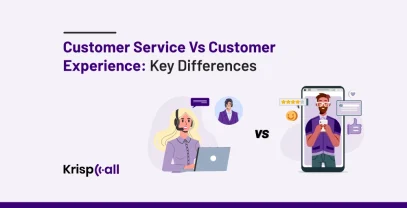Nowadays sales calls are important for businesses to achieve success, but navigating them can be challenging 😞. Many agents neglect to give sufficient time for effective preparation for customer interaction.
This may cause a downward 📉 graph in their sales. Therefore, pre-call planning is important as it helps the sales team to engage with potential buyers and 😀 close more deals. The pre-call planning helps agents to engage with customers, build rapport, and deal with potential objections.
In this blog, you’ll learn about pre-call planning, its benefits, steps for creating effective plans, examples, and common mistakes to avoid during pre-call planning.
🔑 KEY HIGHLIGHTS
- Pre-call planning in sales gives you confidence boost, and time efficiency enhancement leads to improved results.
- It improves the engagement and understanding of clients’ requirements, which leads to improved prospecting results.
- Pre-call planning helps to improve confidence and ability to handle objections.
- It offers a customized, strategic, and well-prepared approach to customer interaction.
What is Pre-Call Planning?
Pre-call planning is a process utilized by sales specialists to simply plan and interact with customers before contacting them. The process concerns collecting important information regarding the individuals and their organization before the call.

It outlines resources, questions, and details for the call. It also helps you focus on making the sale and engaging with the lead. Various sources, such as the company’s website, social media platforms, and industry publications, can be used to conduct this research.
What are the Benefits of Pre-Call Planning?
Pree call planning offers numerous advantages, such as direction, purpose, time efficiency enhancement, and ultimately leading to improved results. Some of the benefits of pre-call planning to help you enhance your business calling are:
Provides Direction and Purpose
Conversations should include a clear purpose and strategy, providing the conversation with direction and securing alignment between you and your customer. Pre-call planning helps sales professionals maintain focus, minimizing unnecessary pursuits. The purpose and strategy of a call are important in providing efficient and effective conversations.
Helps Boost Confidence
Pre-call planning helps to improve confidence by eliminating uncertainty via preparation. It also helps sales professionals join conversations confidently, improve the overall quality of the sales call, and ultimately improve their performance. Having the proper information at hand results in both more comfort and assurance in a call experience.
Enhances Time Efficiency
Time is money, particularly in sales. Pre-call planning helps sales professionals optimize their time by delivering a structured framework for the call. Having a straightforward goal for the call can help you maintain concentration and cover all essential aspects, thereby reducing time spent on irrelevant discussions.
Yields Better Outcomes
Pre-call planning gives you a competitive advantage in converting possible leads into faithful customers. Sales professionals can address individuals and customize their strategy to satisfy their needs by engaging in pre-call planning. By being well-prepared to bear pricing concerns, you can improve their ability to lead calls toward a successful outcome.
Improves Relationships
Pre-call planning improves relationships with customers among sales professionals. It helps build trust and improves overall performance. By demonstrating the necessary research, you can also build credibility and goodwill with potential customers. It potentially leads to lasting relationships even if they are not purchased instantly.
Steps for Creating Effective Pre-Call Planning
Here’s a step-by-step process to create a successful pre-call planning strategy👇:
1. Research Your Prospects
You should invest sufficient time in understanding what challenges your potential client is facing. Research can help you understand your potential client’s company, challenges, decision-makers, competitors, and goals. This helps you understand how to communicate your product or service’s detailed values effectively.
2. Set Clear Goals for the Sales Call
Set clear goals for a sales call, such as setting a future meeting, resolving issues, or finalizing a deal. This helps sales professionals maintain concentration, manage all essential aspects, and steer the discussion toward the planned result. Focus and structure can improve the quality of discussions and improve prospect engagement.
3. Prepare Thoughtful Questions
Develop a list of thoughtful questions based on your research. You can create open-ended questions based on research to interact with the potential client and collect valuable information. Engaging with thoughtful questions can lead you to understand the prospect’s needs and challenges better.
4. Anticipate and Address Objections
First, Identify potential concerns and create strategies to address them during the call effectively. Identify common objections you have reached, such as pricing concerns, contests, or product features. Sales professionals must anticipate objections, prepare persuasive responses, and confidently handle objections during sales calls. It increases their success rate and builds stronger connections with prospects.
5. Analyze Competitors Prospect’s
It is essential to understand your competitors’ prospects. Examine your competitor’s products, services, pricing, and value to identify how your offering can differentiate itself. You can utilize your competitor’s intelligence to create a customized pitch highlighting and demonstrating your special strengths. This helps you to know how nicely you are prepared to fulfill your prospect’s needs.
Pre-Call Planning Worksheet Template
Here are pre-call planning worksheet templates.
Pre-Call Planning Examples
Examples of templates to create a pre-call planning document for your sales team:
Research and Collect Information
Prospect: XYZ Corporation
Undersand prospect industry: Manufacturing.
Current challenges the prospect faces: Implementing a new customer management (CRM) system.
Set Goals and Objectives
Primary objective: Explain the advantages of executing a new CRM system and how XYZ Corporation can reap its benefits.
Secondary objective: Schedule a follow-up meeting to demonstrate the system
Prepare Questions and Topics
Questions to ask:
What are your present pain points with the current CRM system?
How do you visualize your ideal CRM system functioning?
What are your budget limitations for implementing a new system?
Topics to discuss:
Summary of the new CRM system and its features.
Examine the similar case companies that have successfully implemented the system.
Possible timeline for performance and integration.
Anticipate Objections and Prepare Responses
Anticipated objection: “We do not require a new one, we are already utilizing the CRM system”.
Prepared response: “I understand that you already utilize the CRM system in place, but our system provides advanced features that can improve your workflow and customer attention. Can I explain how exact pain points our system can handle?”
Prepare a Follow-up Plan
After the call send a follow-up email summarizing the key points discussed and any agreed-upon next steps.
Plan a follow-up meeting to explain the system and answer any additional queries the prospect may have.
What are the common mistakes to avoid during pre-call planning?
The common mistakes to avoid during pre-call planning, as emphasized in the given sources👇:
- Over-Reliance on Scripts: Avoid making a fixed script for sales calls. It may hinder the natural flow of conversation and limit flexibility and it may less engaged and effective relations with prospects.
- Insufficient Research: If you fail to gather information regarding the potential client, their company, and industry trends, you may miss opportunities and communicate poorly.
- Lack of Personalization: You should invest sufficient time comprehending the prospect’s personality. It can help to understand the communication and connection during the call.
- Inadequate Objection Handling Preparation: If you are not ready for objections or fail to formulate brief persuasive rebuttals to address them, it can have a negative impact on the flow and success of the sales.
- Limited Post-Call Analysis: Failing to analyze the dynamics, emotions, and results of the call after it ends can lead to missed opportunities to improve and refine sales strategies.
Take your Pre-call Planning to the Next Level with KrispCall
KrispCall is one of the best solutions to elevate pre-call planning and optimize communication strategies. With KrispCall’s comprehensive and advanced features, you no longer have to arrange meetings and scramble to gather relevant information.
KrispCall features help you take control of the scheduling process and give you access to a complete view of customer history that includes past purchases, interactions, complaints, and much more. This helps agents understand prospects’ needs and preferences, ensuring that every call is precisely planned and executed for maximum impact.
Whether planning a quick catch-up with a colleague or coordinating a high-stakes conference call with clients, KrispCall simplifies the process, allowing you to focus on what matters most: meaningful communication.
Unlock the full potential of your communication strategy by scheduling a 30-minute demo with KrispCall today.
Conclusion
Pre-call planning is essential to the sales process as it establishes the groundwork for effective sales conversations. You can greatly improve the efficiency of your sales calls by dedicating time and energy to complete preparation.
It offers a complete summary of the available resources, questions, and specifics for the call. It helps you to focus on closing the deal and interacting with the potential customer.
However, before pre-call planning, you must thoroughly research your customer’s needs and preferences, set clear goals for the sales calls, and prepare thoughtful questions. This will help you prepare for potential objections and deal with calmer behavior.





